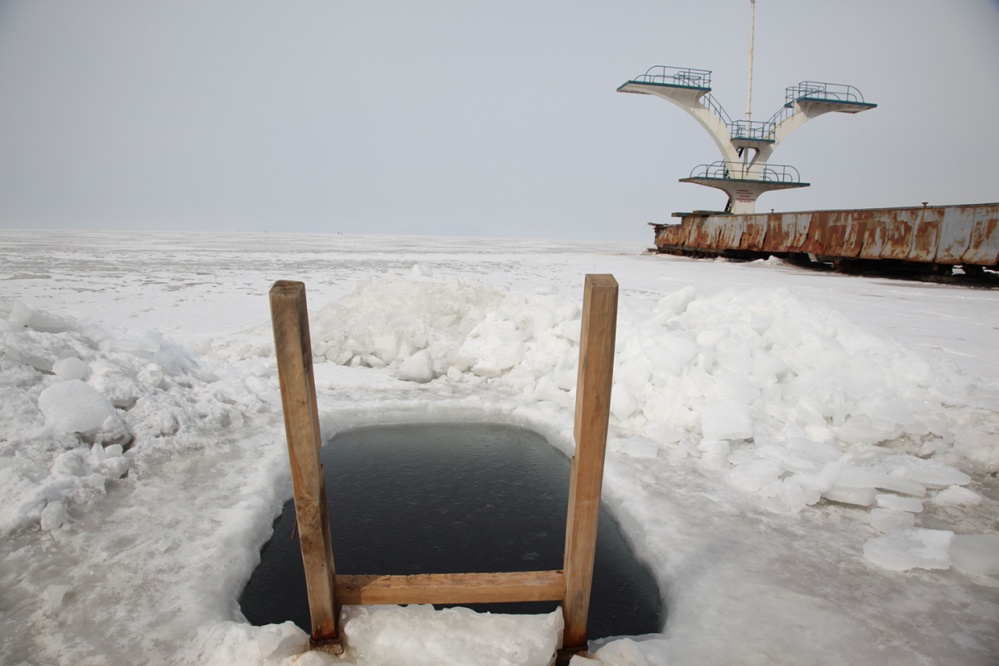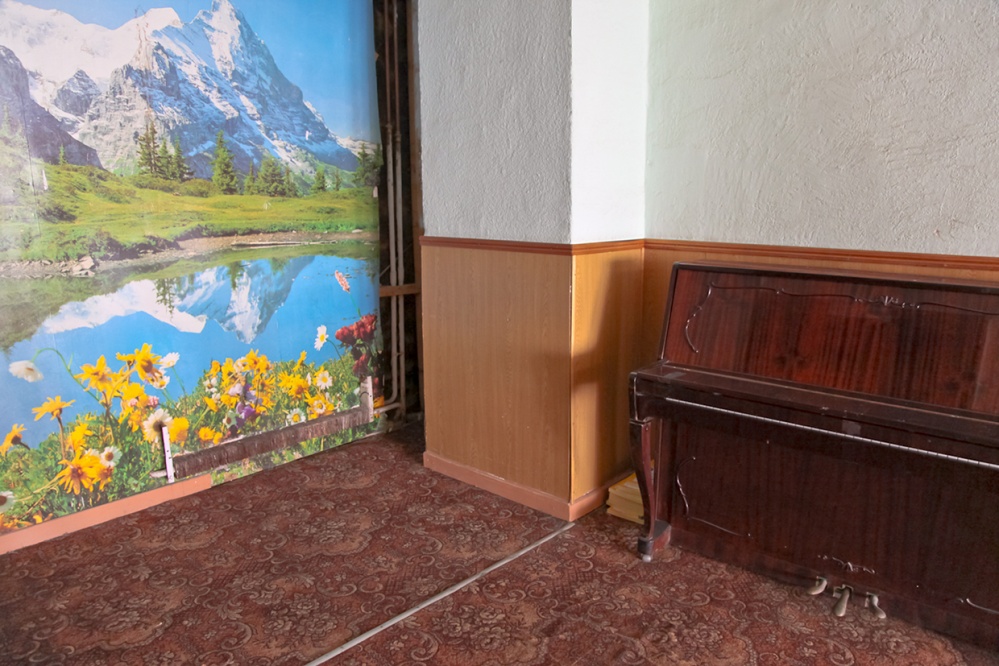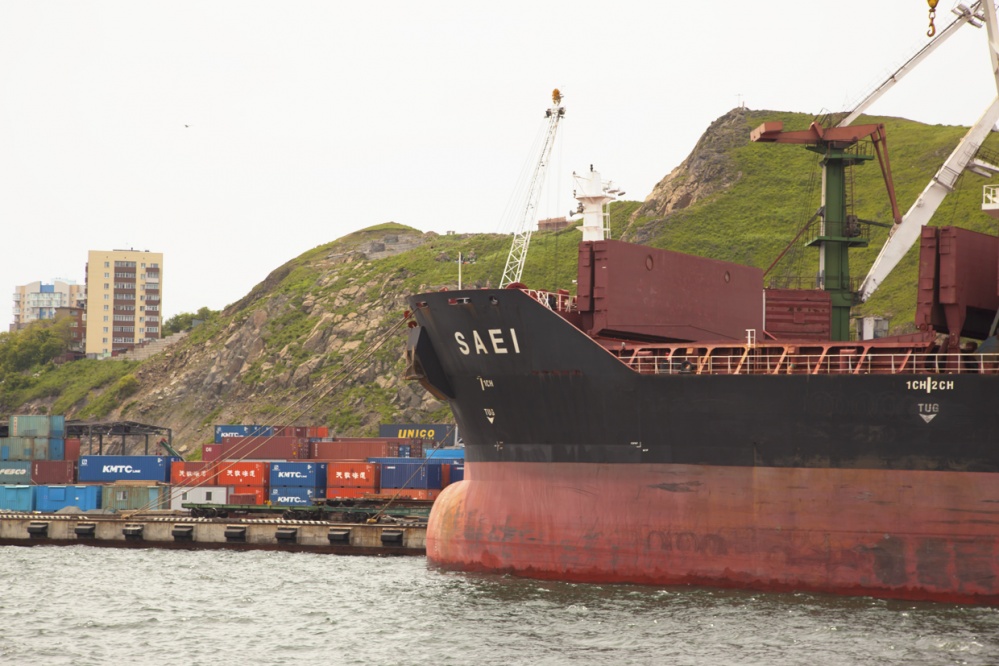This project began as an examination of the adaptation to capitalism and consumer culture by the Far
Eastern region of Russia and how it is faring within the complex global economic picture of
the early 21st century.
I began working on this project in early 2011 in and around Vladivostok, the capital and
largest city of the Primorskiy Krai region, approximately four thousand miles east of Moscow,
home of the Russian Pacific fleet, the terminus of the Trans-Siberian Railroad, and for most of
the 20th century, totally closed off not only to foreigners but to other Russians as well.
I became particularly interested in the Far East because it is entirely less affected by Europe
and the West (as is western Russia) and is significantly more influenced and dependent upon
itself and other countries within Asia. It is therefore socially, economically, ethnically as well
as geographically different and perhaps slated for a very different future than the rest of
Russia. There is a unique and distinct identity here in spite of the fact that there is a complex
ethnic make-up. This creates an interestingly modern dynamic as well as a certain degree of
tension. There is an explicit tension with China, Korea and Japan, all of whom maintain a
strong presence in the realm of consumption: as business owners, producers of goods and
services, students and tourists, legal and illegal immigrants. This is particularly true
with China as a huge percentage of everyday consumer goods purchased by
Russians are imported from China.
My previous work and projects investigate the effect of consumer culture upon the human
psyche. I was therefore drawn to Russia where for most of the 20th century there was
a nonexistent and/or suppressed culture of commercialism as shaper of identity, desire and
security. There certainly was a culture of propaganda, which perhaps worked in similar ways
to advertising and I am curious in comparing the residual effects.
My interest in Russia has been lifelong for a few more personal reasons: I was born in the
United States in the mid 1960s and Russia was still the unquestioned “ Evil Empire” to my
generation of Americans. I grew up with the threat of “nuclear annihilation by the Russians”
as our particular contemporary phobia.
Personally, upon reflection, it seemed to me that I did not perceive Russia to be an enemy at all; to a large extent it was
as though it functioned within the media as a point of comparison and vehicle for self-regard
by Americans. “They” were the opposite of “Us”. But I distinctly
remember an intense American interest in all things Russian: art, technology, sports teams
and athletes, weapons, rockets and astronauts, scientists, technology and industry, ballet
dancers, spies, KGB, and so on. With all of this they were not simply our official competitors,
they were a kind of mirror to Americans and had a great deal of influence upon how we saw
ourselves. They made us both insecure and vainglorious.
I think that the USA and Russia both attach, still, the greatest of importance to how we are
perceived by each other as well as our promotion of ourselves as individual examples to the
rest of the world.



































